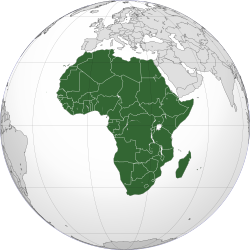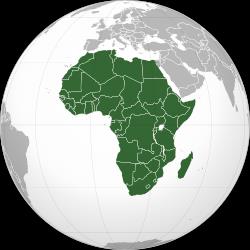
Google Expands AI Skills Funding Into South Africa

Tech giant Google has announced a $2.85 million funding package to support artificial-intelligence skills development, education, online safety and cybersecurity in South Africa. The funding was disclosed at the AI Expo Africa event in Johannesburg and forms part of Google's broader continental strategy to cultivate an AI-ready workforce and digital ecosystem.
The funding will be channelled through Google. org, the company's philanthropic arm, and it builds upon an earlier pledge of $37 million toward AI talent, agriculture, languages and research across Africa. In South Africa specifically, Google selected partner organisations and higher-education institutions to execute the programme, with explicit focus on embedding curricula, connecting innovators to networks and reinforcing cybersecurity for community organisations.
Among the key allocations, $1.5 million will support the FATE Foundation and the African Institute for Mathematical Sciences to embed the DeepMind AI Research Foundations curriculum into South African universities. This aims to equip students and lecturers with advanced AI research skills and elevate local capacity for innovation. A further $350,000 will fund the African Technology Forum AI Challenge, a programme designed to give young innovators hands-on experience developing AI solutions in sectors such as health and energy. On the community and safety front, $500,000 is directed to Junior Achievement Africa to deliver a culturally relevant online-safety programme built on Google's“Be Internet Awesome” curriculum, and another $500,000 to CyberSafe Foundation to improve cybersecurity training and protection for community organisations.
Google's country director for South Africa, Kabelo Makwane, emphasised the long-term nature of the initiative and the importance of building capacity across classrooms, communities and innovation hubs.“By backing organisations who are already doing impactful work, we can help develop the skills and resilience needed to build a more secure and inclusive digital future,” Makwane said. The announcement signals recognition of the fact that Africa's youth population is projected to exceed 830 million by 2050, making access to AI and associated infrastructure pivotal for inclusive growth and innovation.
See also Somalia and IMF Seal Staff-Level Accord on ECF Fourth ReviewExperts in African tech and skills development note that although investments in digital up-skilling have been underway, the shift toward advanced AI education, especially at university level, shows a maturation of strategy. The embedding of institution-level curricula, linking innovators directly to career pathways and supporting cybersecurity for grassroots organisations reflects a multi-layered approach rather than simply delivering basic digital literacy. This contrasts with earlier phases when tech skill-building was more surface-level. Data show that by offering advanced tools, infrastructure, and research access, the goal is to move from consumer-side engagement toward enabling African-led creation and research.
At the same time, observers caution that implementing these programmes on the ground will require more than funding; local institutions must have robust capacities, the curricula must reflect regional contexts and languages, and the digital divide in rural and township areas must not be sidelined. Although Google has committed to making advanced AI tools available-for example students in selected African countries will gain one-year access to Google AI Pro-questions remain over uptake, retention, and linkage to employment outcomes. For South Africa, which already faces structural skilling challenges, the success of this funding will hinge on how well university, non-profit and startup ecosystems collaborate and scale.
Beyond South Africa, Google's move must also be seen in the context of competitive dynamics among global tech firms investing in Africa's AI ecosystem. Earlier, another major firm announced plans to train one million South Africans in AI and cybersecurity by 2026. The overlapping initiatives suggest a race to establish leadership in African AI-talent markets and to build platforms, curricula and networks that could anchor future innovation hubs.
See also Emirates Marks Quarter Century of Uganda ConnectionFrom a policy perspective, South Africa may benefit if this injection dovetails with national objectives around digital transformation, education reform and inclusion of African languages in AI systems. Google already reports having added more than 30 African languages to its translation tool, and is expanding open datasets and voice models for over 40 languages. The alignment between technology corporate strategy and national digital-skills policy could amplify outcomes-provided the links between curriculum, employment markets and regulatory frameworks are managed.
Notice an issue? Arabian Post strives to deliver the most accurate and reliable information to its readers. If you believe you have identified an error or inconsistency in this article, please don't hesitate to contact our editorial team at editor[at]thearabianpost[dot]com. We are committed to promptly addressing any concerns and ensuring the highest level of journalistic integrity.
Legal Disclaimer:
MENAFN provides the
information “as is” without warranty of any kind. We do not accept
any responsibility or liability for the accuracy, content, images,
videos, licenses, completeness, legality, or reliability of the information
contained in this article. If you have any complaints or copyright
issues related to this article, kindly contact the provider above.


















Comments
No comment